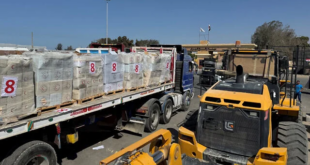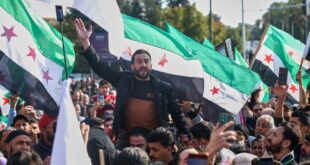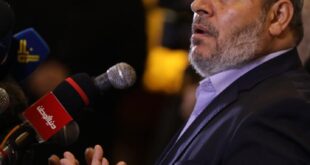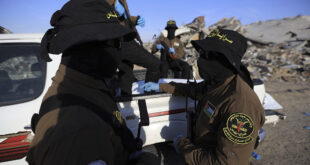SALZBURG — The European Union will face tough choices if it has to carry out its threat to cut off aid to the Palestinian Authority over the Hamas group’s refusal to recognise Israel’s right to exist.
EU foreign ministers reaffirmed on Friday that Hamas, which won a landslide election victory in January, must meet three conditions — recognise Israel, renounce violence and accept past peace agreements — for the bloc to deal with a Hamas-led government.
They also vowed not to let the Palestinian people down.
However, a report by EU foreign policy chief Javier Solana and External Relations Commissioner Benita Ferrero-Waldner shows just how difficult it is to separate aid to the Palestinian people from cooperation with the Palestinian Authority (PA).
“To sum it up in one phrase, the message of the paper is ‘it ain’t that simple’,” an EU diplomat said.
The three-page review of EU assistance to the Palestinians, obtained by Reuters, shows nearly half its annual 500 million euros ($596 million) flows through national and local authorities, and much of the rest requires government involvement.
For example, food aid is classified as humanitarian assistance but is implemented through the PA ministry of social affairs.
The EU-funded UN agency for Palestinian refugees and other UN bodies “need close and continuous interaction with the PA in order to continue to operate,” the report said.
And long-term projects to build Palestinian infrastructure, administrative capacity and the rule of law were all signed with ministries of the PA, with much of the money channelled through the Single Treasury Account of its finance ministry.
50 per cent cut?
“The positions taken by the new PA government will have a determining influence on the possibilities of continued implementation of these programmes,” the study says in the deadpan tone of Brussels prose.
“Preliminary estimates from the Commission suggest that under current circumstances many ongoing projects would need to be suspended, and future aid would have to be cut by 50 per cent.” French Foreign Minister Philippe Douste-Blazy suggested alternative funding mechanisms to target aid directly to individual schools or hospitals, or via Palestinian President Mahmoud Abbas, seen by the EU as a rampart against Hamas.
Humanitarian and economic aid must be maintained, he said, as well as EU programmes to boost the rule of law, otherwise the Palestinian territories would descend into “economic, social and security chaos.”
The issue is so sensitive that the EU paper contained neither options nor recommendations for a course of action. It merely highlighted how difficult any decision would be.
Noting that the Quartet of international peace brokers — the United States, the EU, Russia and the United Nations — had set out in general terms the principles for engagement with a new government, it said: “It is unclear how these principles apply in operational terms to the implementation of economic assistance programmes.” EU ministers decided to play for time and wait until an Israeli general election due on March 28 and the formation of the Palestinian government, and in hopes that Hamas would accept some step-by-step move towards entering the peace process.
Diplomats said the EU hoped an Arab League summit in Khartoum, also on March 28, might give Hamas appointees in government a chance to embrace a common Arab position on recognising Israel, which would go some way towards meeting the Quartet’s conditions.
Until then, the EU is keen to keep public pressure on Hamas with the threat of suspending aid, while privately praying it will not have to pull the plug.
“Whilst it is too early to make judgements on the future political situation, the facts set out in this paper suggest that the continuation of EU financial support to the Palestinian territories beyond traditional humanitarian assistance may be seriously affected,” the report said.
 Eurasia Press & News
Eurasia Press & News



